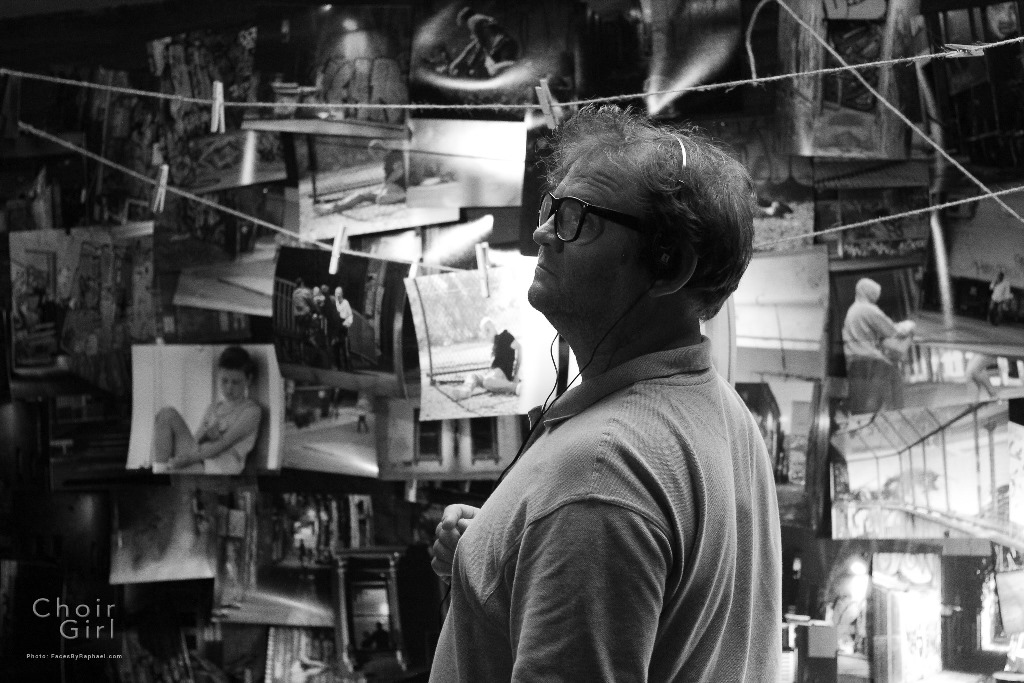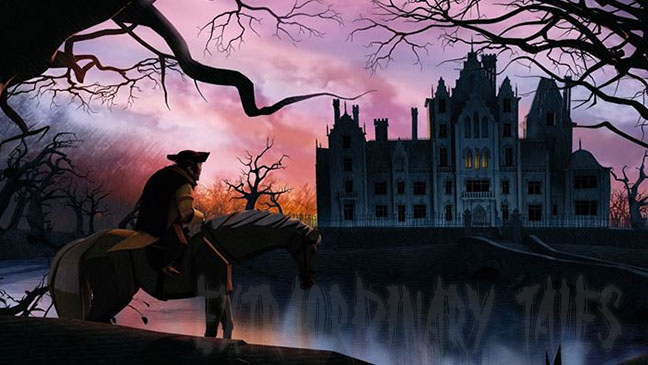Title: Choir Girl
MPAA Rating: Not Yet Rated
Director: John Fraser
Starring: Peter Flaherty, Sarah Timm, Krista Vendy
Runtime: 1 hr 30 mins
What It Is: Struggling photographer Eugene (Flaherty) drifts among the streets and alleys of his neighborhood, where crime and corruption are rampant. When trying to convince a large photography magazine to feature his work, Eugene finds himself enamored with teenage immigrant Josephine (Timm) and her plight with a powerfully dangerous prostitution ring, rescuing her the first chance he takes. Determined to get the magazine involved to tell Josephine’s story and finally get some security and validation from his field, Eugene is forced to realize that in the effort to do good, he must make disturbing sacrifices.
What We Think: This crime drama did run familiar with me in ways that rang competently, one that evokes works such as In Cold Blood or Snowtown, though certainly not to the same caliber of ferocity and sharpness it desires. The stark black and white look and often-handheld camerawork were interesting decisions, those of which I’m not sure work the most in the film’s favor. Though at first glance it looks as if it’s reaching towards what is perhaps an older time period and/or a reference to noir, the movement and placement of the camera sometimes indicated more of an amateur modern crime thriller. The soundtrack, while competent, moody, and often interestingly diegetic, rang a tad inconsistent in tone and placement as well. It is difficult for me to place the technical elements as either achieved or not so much due to some other department, such as editing (which also had a bit of an awkward foot in the door); and for that, it sort of muddled the tone a bit for me. What the tone often suggested the kind of style this movie was going for was one I could appreciate anyway since I do tend to like those sort of films (eg, the ones I mentioned above). I like the preference towards crime dramas that may display noir themes and humanities (or lack thereof), so from there, it was easy to continue giving the film a pass.
The story was interesting, namely in the first act. The setup was intriguing: you question if this will be another Lolita-type, what is really wrong with the protagonist, how does he struggle with elements of his daily life, his masculinity, what changes will become of him… but it soon became clear that this was a tad more simple than your average neo-noir. It read a little bit Saw-esque in its progression, very much a display of “how far are you willing to go to be the good guy?” which is an interesting angle to tackle and definitely serves as food for thought, especially after finishing the screening because, boy, do I feel tested. In an ostentatious attempt at shock value, a deeply graphic incident happens at the tail-end of the film. This leaves me to question the credibility of the film itself, not because it graphically shows a graphic thing happening, but leads me to believe this act being justified within the karmic language of the film is a major pitfall. It was almost suggestive that the protagonist was failed by the system or society that should be rewarding him and thus he was forced to commit a terrible act… this may sound promising (or rather… Joker-esque) though the delivery and act itself felt much more like jumping the shark, which is something that is exponentially much harder to get away with when doing jumping the shark with this sort of scene. It felt like forced emotional fodder and yet did not strike an emotion in me (other than discomfort, which is rather unimpressive considering the kind of scene it was). It’s brave to want to make the audience feel conflicted about the main character and his actions… the only thing is, I thought of ways for him as a character to have worked around things, at least make some sort of communication as to not cause the other character he apparently cares about any further pain. It sounds vague, I’m trying excruciatingly to not spoil the plot in respect to the movie, but had it been carried out as a whole (but of course, with more care in this part of the film) with more depth and consideration to psychology and thought rather than seeking melodrama and action itself, the more dodgy elements would have worked tremendously better as we see the protagonist as more of a flawed human being rather than a prince in a fucked-up fairytale. In these nuances, I do find some difficulty in solidifying judgment; in the end, I think the disorientation, while not to the fault of necessarily the story itself, was also attributed to needing a more comprehensive placement amongst all the elements of the film.
Our Grade: D, Probably the most mixed-baggiest film I’ve seen all year. I think that the story as a foundation was just that: it’s an interesting place to start a story from, but not the final. It could very well be the start of something fantastic, but isn’t quite there yet in visual, stylistic, and storytelling maturity; am I also not quite sure that any of this borderline-silly story was fabricated to simply set up the graphic ending (which would be demented). In all certainty, it all could have done a lot more with some subtlety. What really gave the film any soul at all are the lead performances: Timm was convincingly heartbreaking at times, Flaherty was an intriguing force as our quiet and desperate lead; it seems they put so much into these roles and it’s fantastic to watch. I wanted to see more from them was the thing, all of the characters felt unfinished. It’s a shame how much the movie is held back in that way. I want to believe this is a project that I could stick around for, that in the future will lead to bigger, more sympathetic, and more competent movies–then again, I may be so very, very wrong but for now, that is the movie I am left with.



